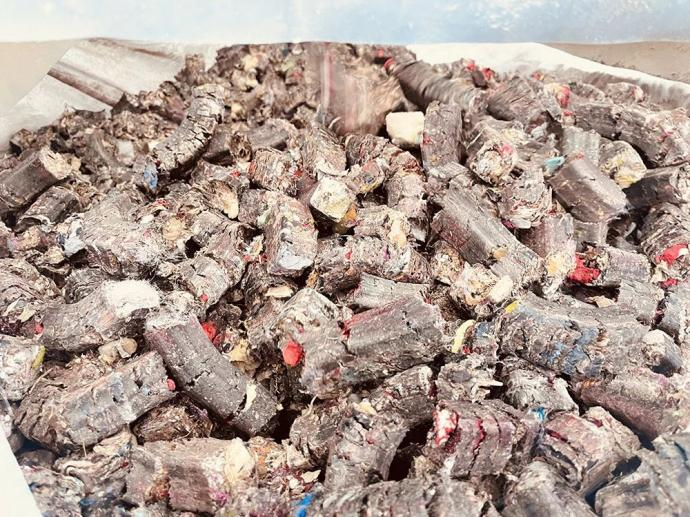

nov . 12, 2024 13:00 Back to list
The Importance of Scrap Metal Grinders in Recycling Industry
In today's fast-paced world, where sustainability is becoming increasingly essential, recycling has stepped into the spotlight as one of the most effective ways to conserve natural resources and minimize waste. Among the various recycling processes, metal recycling plays a significant role, particularly with the use of scrap metal grinders. These machines not only streamline the recycling process but also enhance the efficiency and profitability of metal recycling operations.
A scrap metal grinder is designed to break down larger pieces of scrap metal into smaller, more manageable pieces. This reduction in size is critical for a few reasons. Firstly, it allows for easier handling and transportation of the metal. When scrap metal is condensed into smaller fragments, it occupies less space, making it more cost-effective to ship and store. This is particularly important in the scrap metal industry, where volume can significantly impact profitability.
Secondly, smaller pieces of metal are easier to process in subsequent recycling stages. Most recycling facilities require metals to be shredded or ground down before they can be melted and repurposed. By using a scrap metal grinder, these facilities can ensure that their material is ready for other processes, such as shredding or granulating, which further prepares it for smelting. This not only saves time but also helps to maintain the quality of the end product.
The process of grinding scrap metal can involve various techniques, including hammer mills, rotary grinders, and jaw crushers. Each method has its unique advantages, and the choice of technology often depends on the types of metal being processed and the specific requirements of the recycling facility. For instance, hammer mills are known for their high throughput and efficiency, making them ideal for dealing with large volumes of lighter scrap metals. On the other hand, rotary grinders can effectively break down heavier metals, such as steel and iron, due to their robust design and functionality.

Moreover, scrap metal grinders contribute to the overall sustainability efforts by reducing waste. Every piece of metal that is recycled helps to prevent it from ending up in landfills, where it would take years to decompose and may leach harmful substances into the soil and groundwater. By ensuring that scrap metal is appropriately processed and reused, metal grinders play a vital role in promoting a circular economy. This approach not only conserves natural resources but also reduces the energy consumption associated with raw material extraction and processing.
From an environmental perspective, the use of scrap metal grinders also has a positive impact on reducing carbon emissions. The recycling of metals requires significantly less energy compared to producing new metals from raw materials. For instance, recycling aluminum saves 95% of the energy needed to produce aluminum from bauxite ore. By enhancing the efficiency of the metal recycling process, scrap metal grinders contribute to greater energy savings and lower greenhouse gas emissions.
In addition to their environmental benefits, scrap metal grinders also offer economic advantages to businesses involved in recycling. By increasing the efficiency and effectiveness of the recycling process, these machines can help companies maximize their profits. Faster processing times, reduced transportation costs due to smaller material sizes, and higher-quality end products all contribute to a more profitable operation.
The growth of the manufacturing and automotive industries, which produce substantial amounts of scrap metal, has led to an increased demand for effective recycling solutions, including scrap metal grinders. This demand is expected to continue rising, prompting innovations in grinding technology to improve efficiency and cater to the evolving needs of the market.
In conclusion, scrap metal grinders are indispensable tools in the recycling industry. They facilitate the efficient processing of metal waste, contribute to environmental sustainability, and enhance the profitability of recycling operations. As the world increasingly embraces sustainable practices, the role of scrap metal grinders will only become more pronounced, helping to pave the way toward a more resource-efficient future. Whether through reducing landfill contributions, conserving natural resources, or maximizing economic returns, these machines are a critical component of a modern recycling strategy. The future of scrap metal recycling looks bright, thanks in no small part to the advancements in grinding technology.
Latest news
Troubleshooting Common Eddy Separator Problems
NewsJul.04,2025
The Role of Metal Recycling Plants in Circular Economy
NewsJul.04,2025
The Impact of Recycling Line Pickers on Waste Management Costs
NewsJul.04,2025
Safety Features Every Metal Shredder Should Have
NewsJul.04,2025
How Industrial Shredders Improve Waste Management Systems
NewsJul.04,2025
How Cable Granulators Contribute to Sustainable Recycling
NewsJul.04,2025